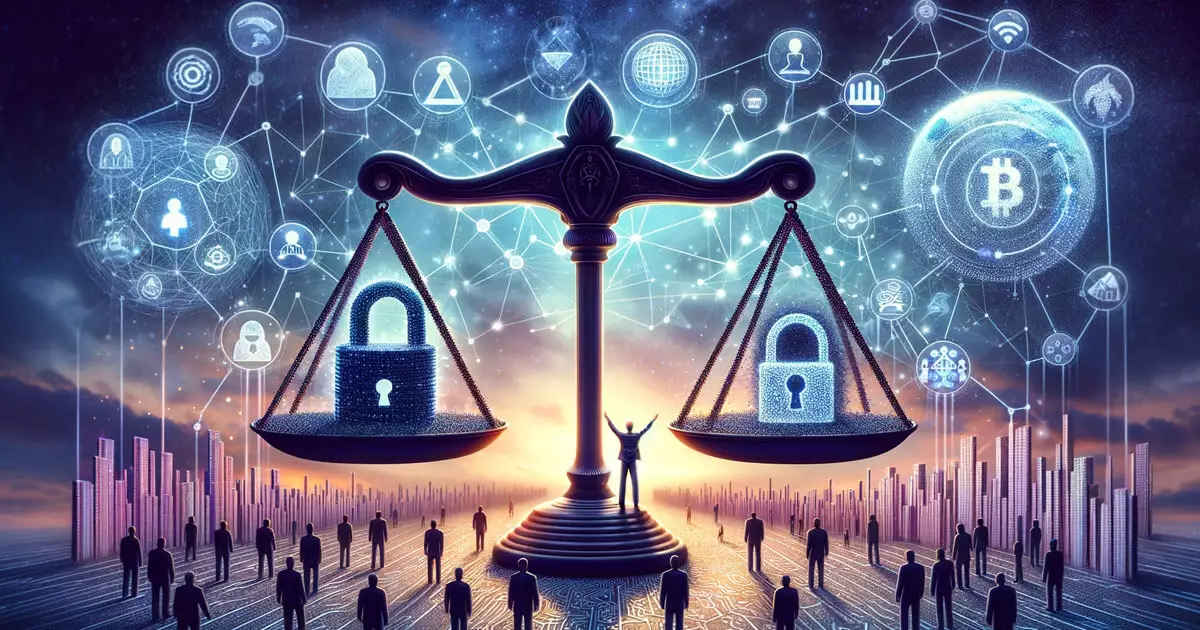In the realm of blockchain technology, the issue of data transparency versus personal data ownership has become a contentious topic. While the decentralized nature of blockchain offers transparency and immutability, there is a growing concern about individual control over personal data. Striking a balance between these two aspects is crucial, but is it feasible to achieve both simultaneously?
The desire for personal ownership of data while breaking free from the stronghold of large corporations is a valid one. Users want to have autonomy over their individual data while also demanding transparency in the system. However, the dilemma arises when this liberation of user data leads to potential criminal activities, such as money laundering and illicit financing.
Crypto mixers have emerged as a solution for individuals seeking to reclaim ownership over their transactional data. These mixers offer anonymity at the cost of a small fee, allowing users to obfuscate the origin of their funds. While this may seem like a win-win situation, where users retain control over their data while ensuring privacy, it has also led to a mixing of clean and dirty transactions.
As a result, regulatory bodies like the Financial Crimes Enforcement Network (FinCEN) have raised concerns about the use of crypto mixers in facilitating money laundering. The recent proposal to regulate crypto mixers as a primary money laundering concern underscores the need for more stringent measures to prevent illicit activities in the blockchain space.
While the intervention from regulatory authorities like FinCEN is justified, there is a risk of excessive reporting and penalties that could hinder legitimate economic activities. Striking a balance between transparency and data ownership becomes more challenging in the face of increased scrutiny and regulations.
The Blockchain Association has highlighted the potential consequences of overbroad anti-money laundering requirements, which could drive digital asset businesses to less regulated jurisdictions. This could lead to a situation where law enforcement agencies have even less access to information on suspicious activities, ultimately defeating the purpose of regulatory intervention.
Amidst the growing concerns over illicit activities in the blockchain space, the onus lies on those deeply entrenched in the industry to foster responsible mechanisms that promote authenticity and trust. While there has been a decrease in cryptocurrency crimes reported by Chainalysis, there is still a significant need to clean up the ecosystem and prevent illicit activities from taking place.
By implementing preventative measures such as smart contracts informed by Chainalysis, blockchain protocols can act as gatekeepers to weed out illicit transactions from the system. This proactive approach can help mitigate the risks of criminal activities and reduce the volume of illicit transactions across the board.
In addition to prevention, empowering users with the autonomy to decide which data points they wish to reveal or conceal is essential. Utilizing technologies like ZK-proofs and off-chain computations, users can obfuscate transaction details from the public while sharing them with trusted parties. This selective transparency ensures that innocent users can protect their data while maintaining accountability within the system.
Rather than relying solely on external regulatory bodies like FinCEN, the blockchain community should take charge of ensuring the integrity of the ecosystem. By embracing accountability and adopting measures that prioritize security and transparency, the blockchain space can continue to innovate while safeguarding against illicit activities.

